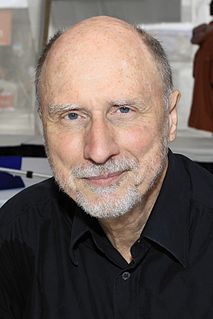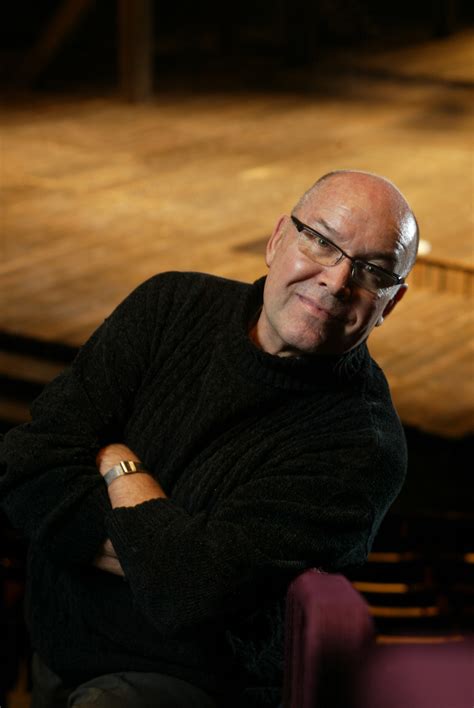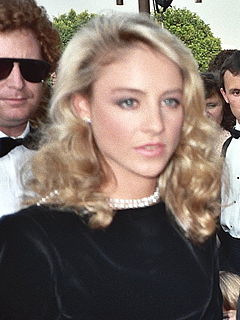A Quote by Kareem Abdul-Jabbar
Each story, novel, poem and play presents a vision of the world that illuminates the dark cave of life we stumble through. We can see better where we're going, what sudden drop to avoid, where the cool water is running.
Related Quotes
Natural writers will often try to force themselves into a form - novel, story, screenplay, or poem - that is not necessarily the appropriate form for the way they see the world... if, in fact, they are writing from the artist's impulse, which is a deep, inchoate vision of some sort of order behind the apparent chaos of life on planet earth, they'll be driven then to express that vision in the creation of the object - the art object.
You may be going through a trial so overwhelming that it's borderline unbearable. You want to see the end of the tunnel. Which is only natural, because once we see that little speck of light, we feel we can make it through to the finish. But God's tunnels are often twisting, too complex and dark to see the light for many days. In such settings He says, "In that dark, twisting, seemingly endless period of time, trust Me. Stop running scared! Stop fearing!"
Seeing the play ( A Lie of the Mind ) clearly is part of why I wanted to direct it. I see hope at the end of this play. People talk about how dark the play was, but I feel like, if you really look at the darkness, you're able to go through it, and you realize that you can handle dark moments in life and that everything will be all right.
Perhaps I could best describe my experience of doing mathematics in terms of entering a dark mansion. You go into the first room and it's dark, completely dark. You stumble around, bumping into the furniture. Gradually, you learn where each piece of furniture is. And finally, after six months or so, you find the light switch and turn it on. Suddenly, it's all illuminated and you can see exactly where you were. Then you enter the next dark room.
As writers we live life twice, like a cow that eats its food once and then regurgitates it to chew and digest it again. We have a second chance at biting into our experience and examining it. ...This is our life and it's not going to last forever. There isn't time to talk about someday writing that short story or poem or novel. Slow down now, touch what is around you, and out of care and compassion for each moment and detail, put pen to paper and begin to write.
Each story presents a mystery that has to be solved in the process of writing. When I'm at work on a story, I'm completely immersed in that world and in the lives of those characters; they're utterly real to me. Then, when I've completed the story, it all just falls away. The whole compulsion to understand is over.




































